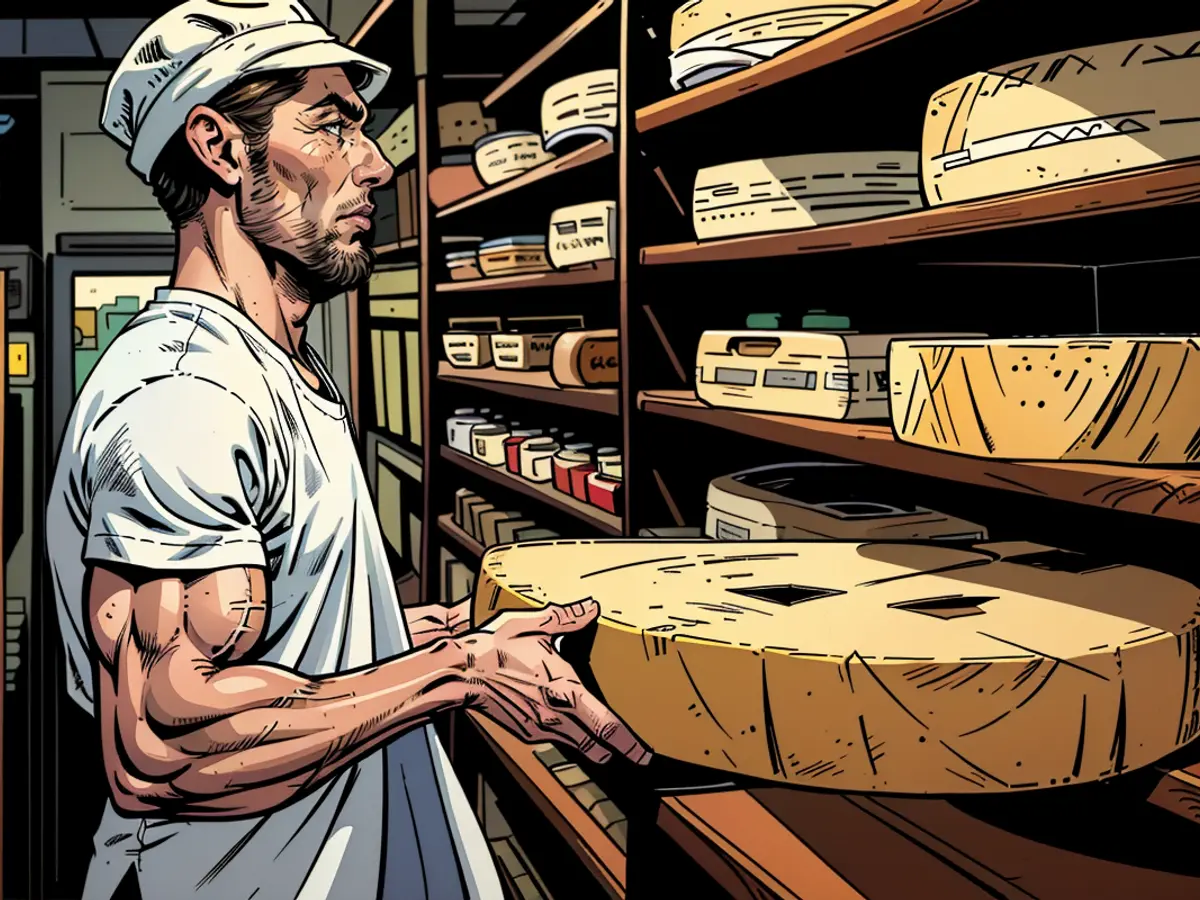China retaliates against EU dairy items due to implemented automobile tariffs
Investigations Ongoing: The EU's Common Agricultural Policy subsidies, coupled with national programs in countries like Ireland, Austria, Belgium, Italy, Croatia, Finland, Romania, and the Czech Republic, are currently being probed, as declared by the ministry. This comes in response to a complaint lodged by Chinese dairy product producers. There were also discussions concerning this matter with EU representatives recently.
This action is perceived as a preemptive strike in the ongoing conflict regarding EU taxes on electric vehicles (EVs). On Tuesday, the EU Commission set the taxes for vehicles from China, which could go up to 36.3% and take effect by the end of October for an initial five-year period. Major automakers such as BMW, VW, and Tesla, which manufacture in China, will incur lower taxes.
Brussels alleges China of unlawfully subsidizing its manufacturers and fears those subsidies may harm European providers, resulting in factory shutdowns and job losses. Chinese EV producers are aggressively expanding into the European market with exceptionally low prices. The EU aims to control, rather than completely prohibit, Chinese imports, as the US does with a 100% tax.
Commission sources suggest negotiations with Beijing are still feasible to avert the taxes. However, so far, these negotiations have not been fruitful. The chairman of the EU Parliament's trade committee, Bernd Lange (SPD), expresses his hope for "a constructive dialogue and joint solution" and believes the higher taxes will not be enforced immediately and will not be retroactive. Further talks with companies and discussions with the Chinese side "regarding the potential reduction of illegal subsidy practices" are being planned.
The EU Commission announced the increased taxes in June. At that time, China had already started an "anti-subsidy investigation" on EU pork. Since January, Chinese authorities have also been examining alleged illegal subsidies on European alcoholic beverages like Cognac.
The pending duties on select product categories are causing friction among EU members. For instance, Spain, which is the largest exporter of pork, will be impacted more greatly than other nations. The brandy investigation predominantly implicates French products.
The Irish Republic, being one of the countries under investigation for EU subsidies, is closely monitoring the ongoing negotiations between the EU and China. The EU is hoping to find a constructive solution with China to avoid the potential implementation of higher taxes on Chinese imports, which could impact Irish exports as well.







